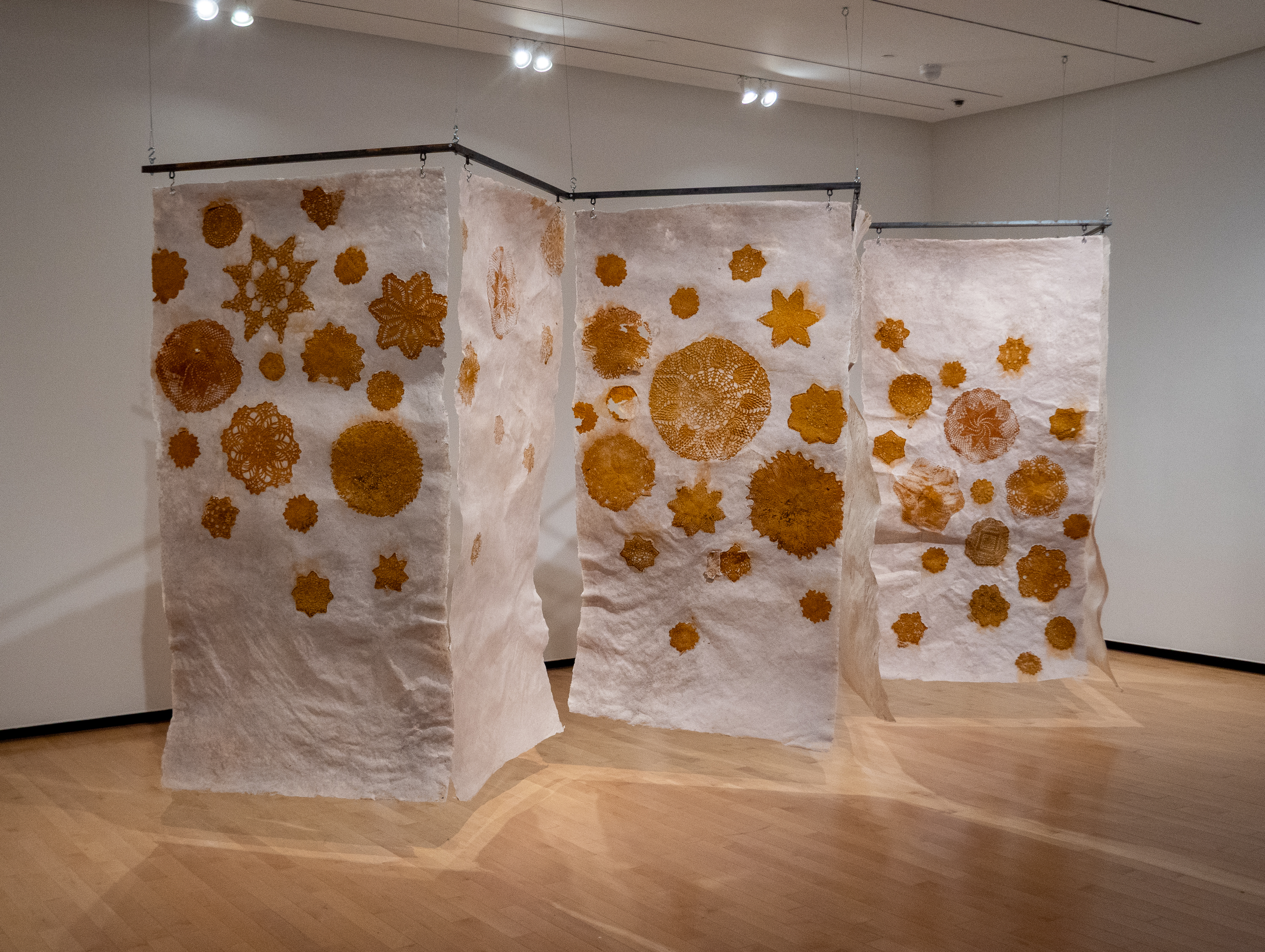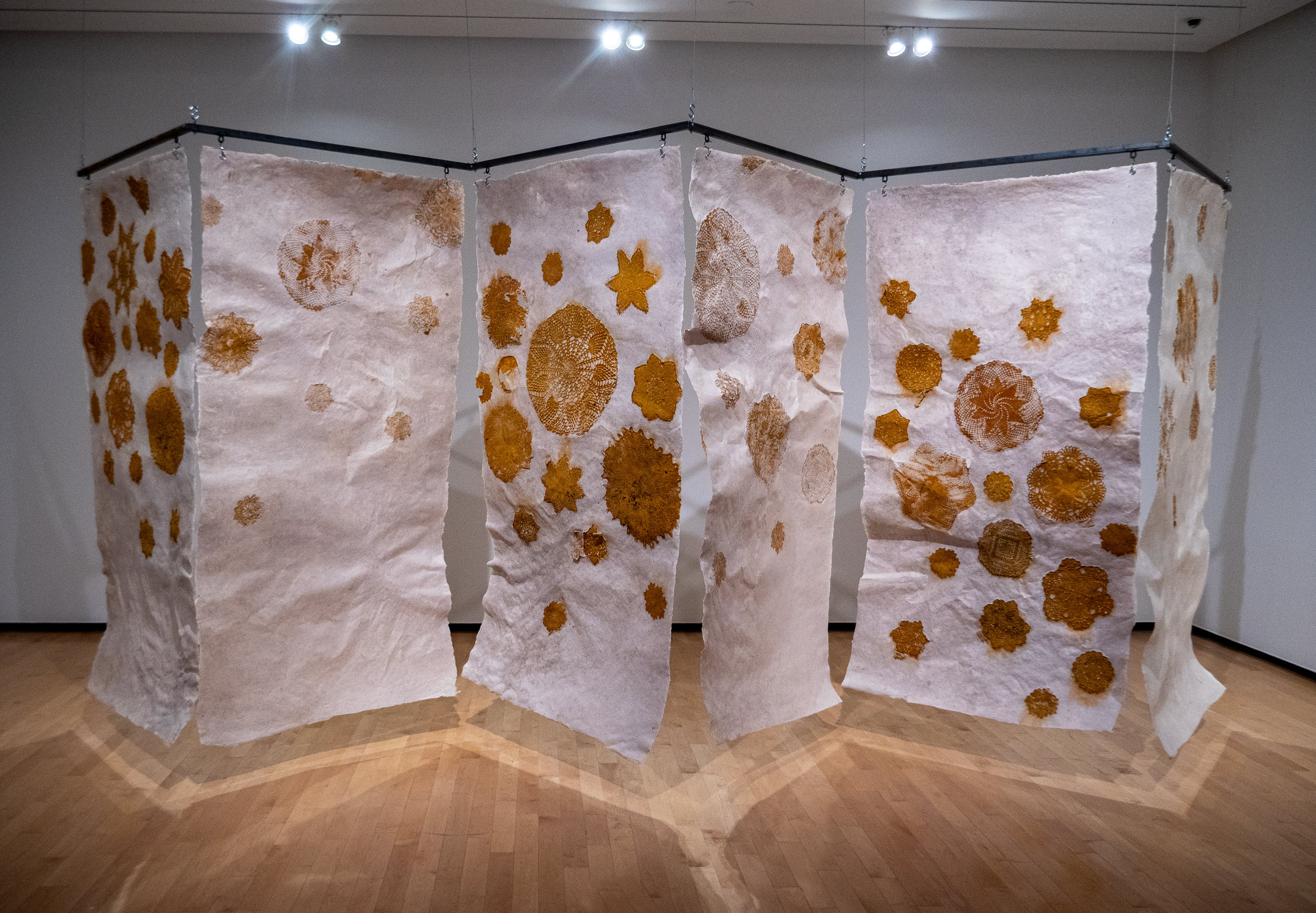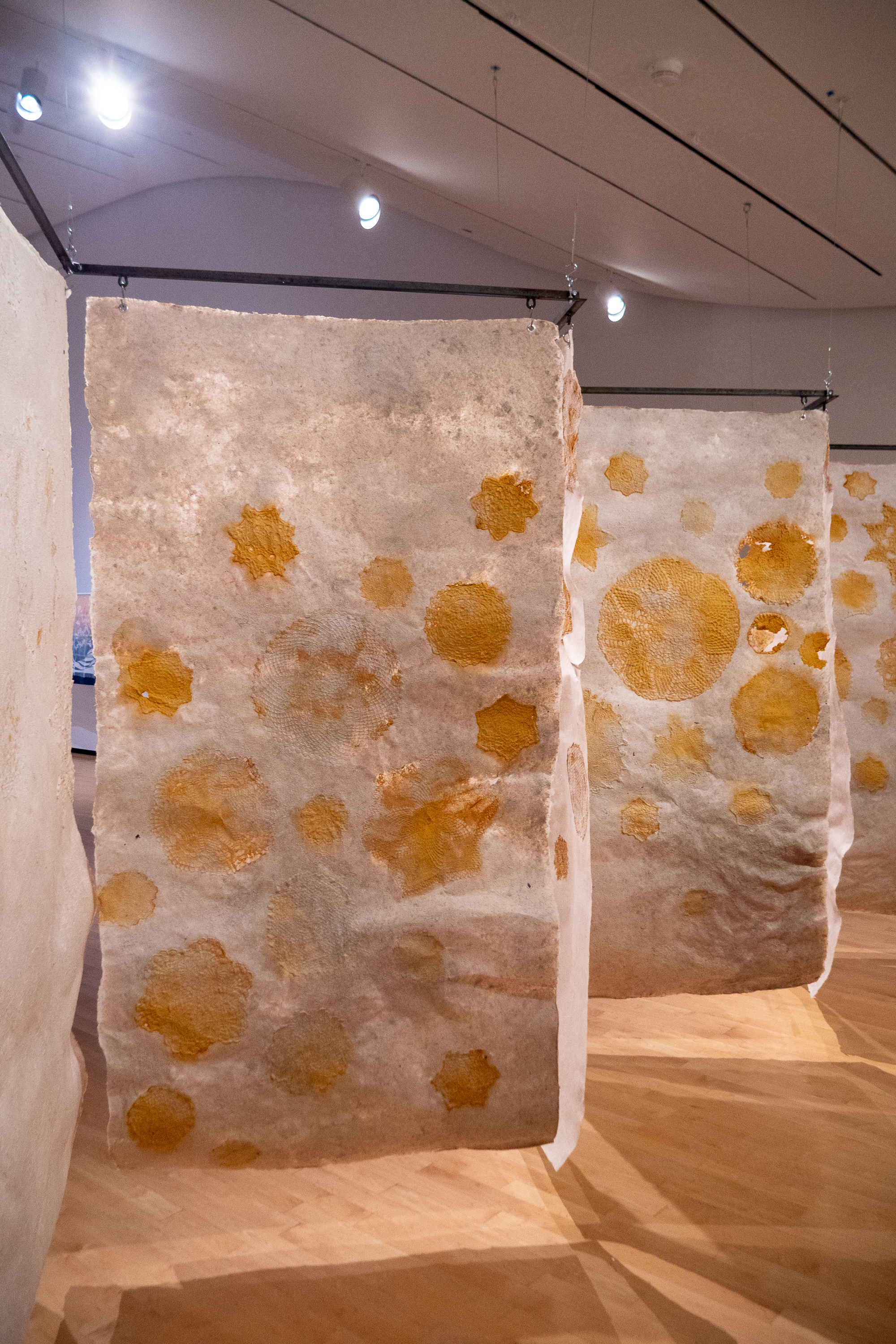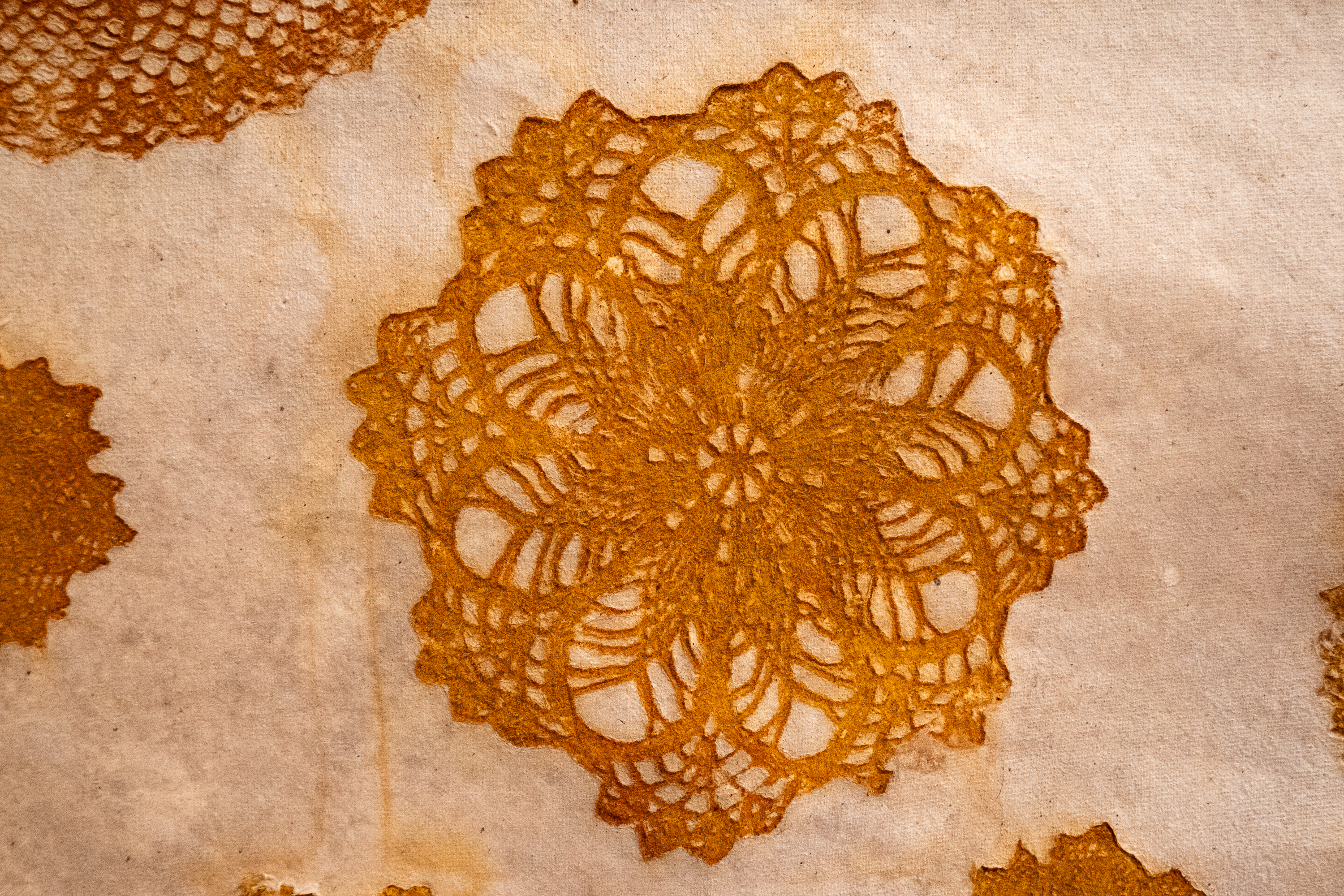Her secret voice, if soundless then possibly visible, might work out of her terrible mouth like a vine, preening and sprung with flowers.

Her secret voice… represents often overlooked but impactful women’s labor through corroding doily forms, white women’s complicity, and the reliance of the American South on cotton to amass the nation’s wealth. The fiber in these sheets consists of raw cotton grown in Alabama, processed through laborious hand papermaking into large sheets. The floating rusted forms traipse across the paper, bright orange with iron dust and are impressed into the sheets from actual vintage doilies largely produced by women to beautify their homes. The doilies also look like floating cells or falling snowflakes, connecting to the change of the seasons and organic matter.
The cotton was gathered from discarded Auburn University soil science studies and holds the long, fraught history of the crop in America. Cotton drove our country’s wealth due to profiting off of slave labor in the 18th and 19th centuries. It is still used worldwide and is an essential cash crop and export. The corrosive rust tears away the integrity of the paper, which also naturally appears flesh-like and wrinkled akin to Caucasian skin. The title comes from Eudora Welty’s short story “Moon Lake” that is part of her series that takes place in Morgana, an imaginary, but quite real, small Mississippi town. The white female figures she describes hold space in our conflicting narratives of the past and its impact on the present, visible and invisible, terrible and beautiful, preening and sprung with flowers.


